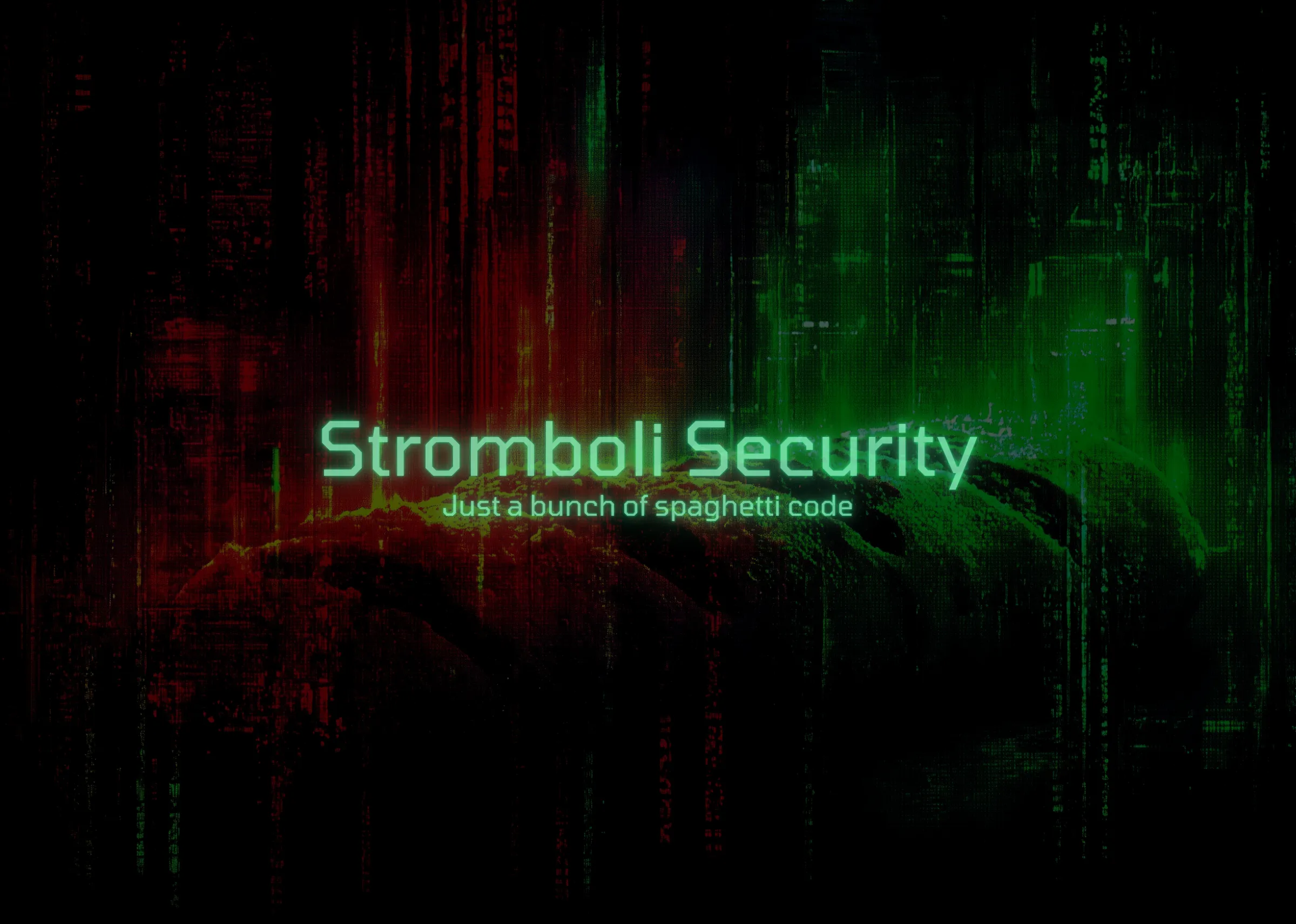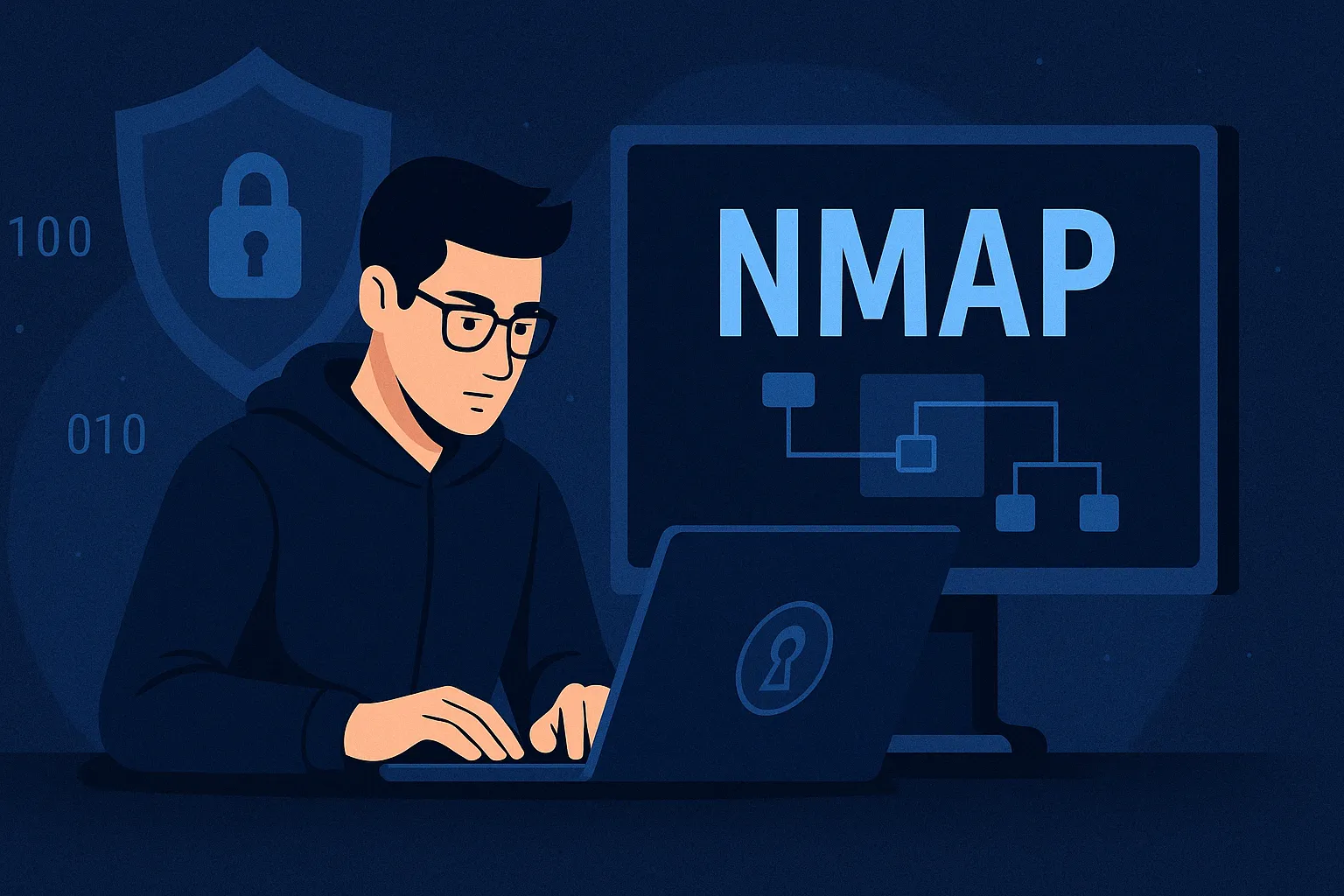Comprehensive Nmap Cheat Sheet
⚠️ Disclaimer: This article is intended for educational purposes only. Unauthorized scanning of networks that you do not own or have explicit permission to test may be illegal and unethical. Always ensure you have proper authorization before performing any network reconnaissance activities.
Basics
Installing Nmap
🖥️ Windows Installation
Go to the official Nmap download page:
https://nmap.org/download.htmlDownload the Microsoft Windows Installer (
.exe)Run the installer and follow these steps:
- Accept the license agreement
- Choose default options
- ✅ Ensure the following are checked:
- Nmap
- Zenmap (GUI)
- Add to PATH
Verify installation:
nmap -v
🐧 Linux Installation (Debian/Ubuntu)
Run the following commands in your terminal.
sudo apt update sudo apt install nmap -yVerify
nmap -v
🍎 macOS Installation
Option 1: Install via Homebrew
If you have Homebrew installed:
brew install nmapOption 2: Manual Installer
Download the macOS installer from https://nmap.org/download.html
Run the package and complete the installation
Standard Scan
Performs a default scan using common ports and TCP SYN packets to identify open ports and services.
nmap <IP-address>Scan Multiple Targets
Scans multiple IP addresses or ranges to discover open ports and services.
nmap <IP1> <IP2>
nmap 192.168.1.1-20
nmap 192.168.1.0/24Scan a Range of Ports
Targets a specific set or range of ports to identify open ports.
nmap -p 1-65535 <IP-address>
nmap -p 80,443,8080 <IP-address>Host Discovery Only (Ping Scan)
Determines if hosts are online without scanning for ports.
nmap -sn <IP-address>Scan Techniques
TCP SYN Scan (Stealth Scan)
Conducts a stealth scan by sending TCP SYN packets without completing a full connection.
nmap -sS <IP-address>TCP Connect Scan
Uses the full TCP three-way handshake to establish connections and detect open ports.
nmap -sT <IP-address>UDP Scan
Checks for open UDP ports.
nmap -sU <IP-address>TCP ACK Scan (Firewall Detection)
Tests firewall rules by sending ACK packets.
nmap -sA <IP-address>Service and Version Detection
Detect OS and Services
Gathers detailed information about the operating system, services, and their versions.
nmap -A <IP-address>Version Detection
Detects the version information of services running on open ports.
nmap -sV <IP-address>OS Detection
Identifies the operating system of the target.
nmap -O <IP-address>Script Scanning (NSE)
Default Script Scan
Runs default Nmap scripts to gather additional details.
nmap -sC <IP-address>Vulnerability Detection
Uses scripts specifically designed to detect vulnerabilities.
nmap --script=vuln <IP-address>HTTP Enumeration
Enumerates HTTP services and directories.
nmap --script=http-enum <IP-address>Heartbleed Detection
Checks for the Heartbleed vulnerability on SSL/TLS.
nmap -sV --script=ssl-heartbleed <IP-address>Timing Options
Set Scan Speed (0 slowest, 5 fastest)
Adjusts the scan speed to manage stealth and reliability.
nmap -T0 <IP-address> # paranoid
nmap -T1 <IP-address> # sneaky
nmap -T2 <IP-address> # polite
nmap -T3 <IP-address> # normal (default)
nmap -T4 <IP-address> # aggressive
nmap -T5 <IP-address> # insaneFirewall and IDS Evasion
Fragment Packets
Splits packets into fragments to evade detection by firewalls and IDS.
nmap -f <IP-address>Specify MTU
Manually sets the packet size to evade detection.
nmap --mtu 24 <IP-address>Decoy Scan
Uses multiple decoy addresses to obscure the true source of the scan.
nmap -D RND:10 <IP-address>Idle Zombie Scan
Conducts a stealth scan using a zombie (idle) host to mask the attacker’s IP.
nmap -sI <zombie-ip> <target-ip>Output Formats
Save Output to File
Saves scan results in normal text format to a file.
nmap -oN output.txt <IP-address>XML Output
Exports results in XML format for easy parsing.
nmap -oX output.xml <IP-address>Greppable Output
Saves output in a format optimized for grep usage.
nmap -oG output.grep <IP-address>Miscellaneous
Disable DNS Resolution (Speeds up Scan)
Prevents DNS resolution to speed up scanning.
nmap -n <IP-address>Show Only Open Ports
Displays only the ports identified as open.
nmap --open <IP-address>Aggressive Host Discovery
Combines multiple host discovery techniques for better accuracy.
nmap -PE -PP -PS80,443 -PA3389 <IP-address>Verbose Output
Provides additional detail about the scan’s process.
nmap -v <IP-address>
nmap -vv <IP-address> # very verboseMaster these commands to build your foundational skills in penetration testing and cybersecurity assessments.





